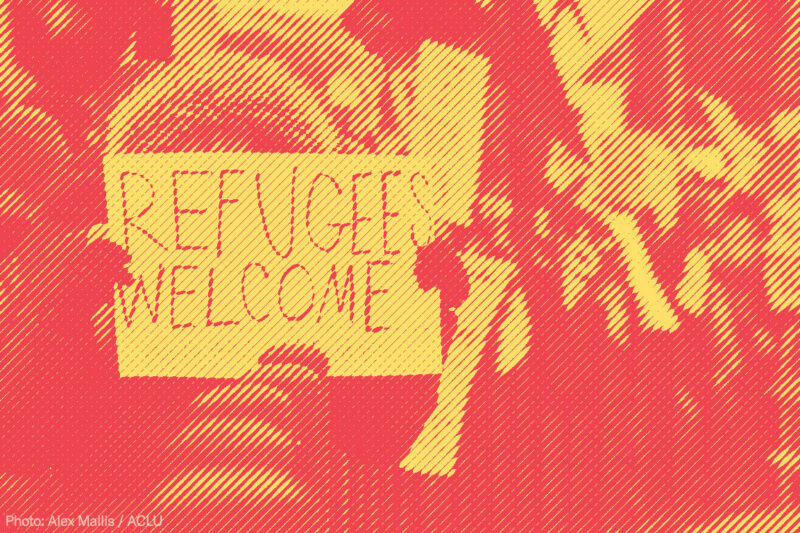
This case challenges President Trump’s executive order prohibiting entry to the United States to people from six Muslim-majority countries. The president imposed a version of the order in January, to immediate and devastating impact, as many incoming travelers were detained at airports, and families across the country were separated from their loved ones. Thousands of people flooded the airports in protest, and the courts quickly stepped in to block the ban, starting with a case filed by the ACLU and our partner organizations. Other challenges quickly followed. When federal judges temporarily blocked that ban, Mr. Trump issued the current version, which left in place the same fundamental defects.
The ACLU, along with the National Immigration Law Center (NILC) and the ACLU of Maryland, filed International Refugee Assistance Project v. Trump, which challenges the current version of the ban. In IRAP and Hawaii v. Trump, federal district courts in Maryland and Hawaii blocked key provisions of the ban, and the Courts of Appeals for the Fourth and Ninth Circuits upheld those decisions. In the IRAP case, the Fourth Circuit in Richmond, Virginia, concluded that the president’s order “drips with religious intolerance, animus, and discrimination.” The government appealed the rulings to the Supreme Court, which agreed to hear oral arguments for both cases on October 10.
Can the president use an executive order to bar entry to anyone?
No. The president is not above the law and the Constitution. As a candidate, Mr. Trump repeatedly said he wanted to forbid Muslims from entering the United States, and then said he would do so by using nationality as a proxy. Almost immediately after his inauguration, he signed an executive order doing just that. But that’s just the kind of discrimination our Constitution prohibits. As Judge Wynn of the Fourth Circuit explained: “Laid bare, this Executive Order is no more than what the President promised before and after his election: naked invidious discrimination against Muslims.”
What are the legal issues raised by the ban?
Three provisions of the executive order are at issue: a 90-day ban on people from six overwhelmingly Muslim countries; a 120-day ban on refugees; and a reduction of the overall number of refugees to be admitted during fiscal year 2017.
The Establishment Clause of the Constitution prohibits the government from condemning any particular religion. Picking sides among religions isolates and excludes some, and leads to dangerous societal divisions along religious lines. The question here is whether the court will apply settled Establishment Clause principles to this case, or whether it will, as the government urges, blind itself to all the evidence indicating that this order was an attempt to fulfill the president’s promise of a Muslim ban.
Another issue is whether the president has the power to take these actions at all. The president cannot simply rewrite or ignore the laws Congress has passed. But that’s exactly what he’s done with this sweeping proclamation, which ignores Congress’s explicit prohibition of national-origin discrimination and would also upend other aspects of our immigration laws. If this ban is allowed, the president could go on to rewrite our immigration system by proclamation, without input from Congress.
The broader question raised, as the Fourth Circuit noted, is whether the Constitution applies to everyone, “rulers and people,” police officers and presidents, “equally in war and in peace.” It does.
Who are the plaintiffs?
The plaintiffs are International Refugee Assistance Project, which provides direct legal services to refugees and others seeking to escape violence and persecution; HIAS, the country’s oldest refugee resettlement agency; the Middle East Studies Association, an association of scholars; and individuals, including U.S. citizens, personally affected by the ban.
What is the current state of the travel ban, pending a Supreme Court decision?
In June, the Supreme Court allowed the government to move forward temporarily with a narrow version of the ban, stating that anyone with a “bona fide relationship” to a person or organization in the United States cannot be banned. That interim ruling will remain in effect until the Supreme Court issues a final decision, sometime after oral arguments in October.

